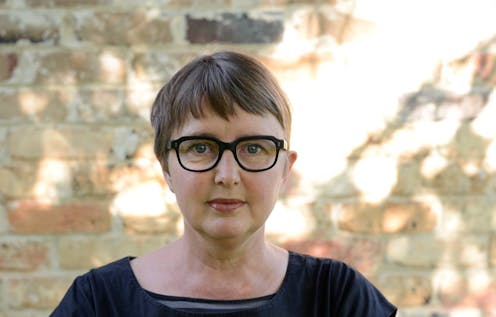Georgia Blain’s haunting final stories reveal the fragile moments that shape us
- Written by Camilla Nelson, Associate Professor in Media, University of Notre Dame Australia

I first met Georgia Blain at The Basement. This was back in the 1990s, when the iconic underground jazz venue near Sydney’s Circular Quay still drew a vibrant, edgy crowd. We were young, in our late 20s, and had been invited to read for an event hosted by the Sydney Writers’ Festival; there to be the “bright young things”.
I look back and cringe at my awkward younger self, but I can see Georgia very clearly. Her pixie hairdo; her skin luminous in the semi-darkness. Georgia had a way of talking to you that was totally focused in the moment.
She read from her first novel, Closed for Winter[1] – a fictional exploration of her grief at the loss of her brother to schizophrenia and drug addiction[2] at an early age. It was “material”, an emotional fabric, that Georgia would be drawn back to, again and again.
I can’t seem to find the passage in the book, but I remember how the words felt. There’s a kind of stillness at the centre of Georgia’s writing; a grief, an absence around which the characters swirl – in scenes always shapely, poised, sharply observed and elegantly suspenseful.
And so, it was with a small shock that I picked up and read the posthumously published We All Lived in Bondi Then[3], the “new” collection of short stories Georgia wrote between 2012 and 2015, before her death from cancer in December 2016.
The voice is familiar, elegiac, but clear-eyed. There was never any artifice, melodrama or sentimentality in Georgia or her work.
Read more: Goodbye Georgia Blain: a brave and true chronicler of life[4]
Familiar preoccupations
The opening story, Australia Square, is frankly magnificent, weaving together Georgia’s familiar themes and preoccupations. A baby boy goes missing, then mysteriously reappears. Years later, his sister looks back on a childish mistake – the dropping of a stuffed toy – and is gripped by the idea that if just this one thing could be corrected, then perhaps the devastating aftermath, the loss of the baby, her parents’ divorce, the breakdown of her family, her brother’s psychotic episodes, would not have followed.
The thought is all the more poignant because the reader suspects the future has a way of finding you, regardless.
In Dear Professor Brewster, a daughter grapples with the onset and inexorable progress of her mother’s Alzheimer’s disease. The daughter’s finely wrought anguish is punctuated by the letters she writes to her mother’s treating doctor, who – bound by a code of medical ethics – sends only inscrutable, perfunctory replies.
Among the haunting stories in the collection, Ship to Shore features a mother paralysed with grief following the death of her four-year-old son. She embarks on a desperate journey down south, her visceral pain exquisitely rendered by the boom of artillery fire, as gunships practise manoeuvres on a nearby naval base.

















